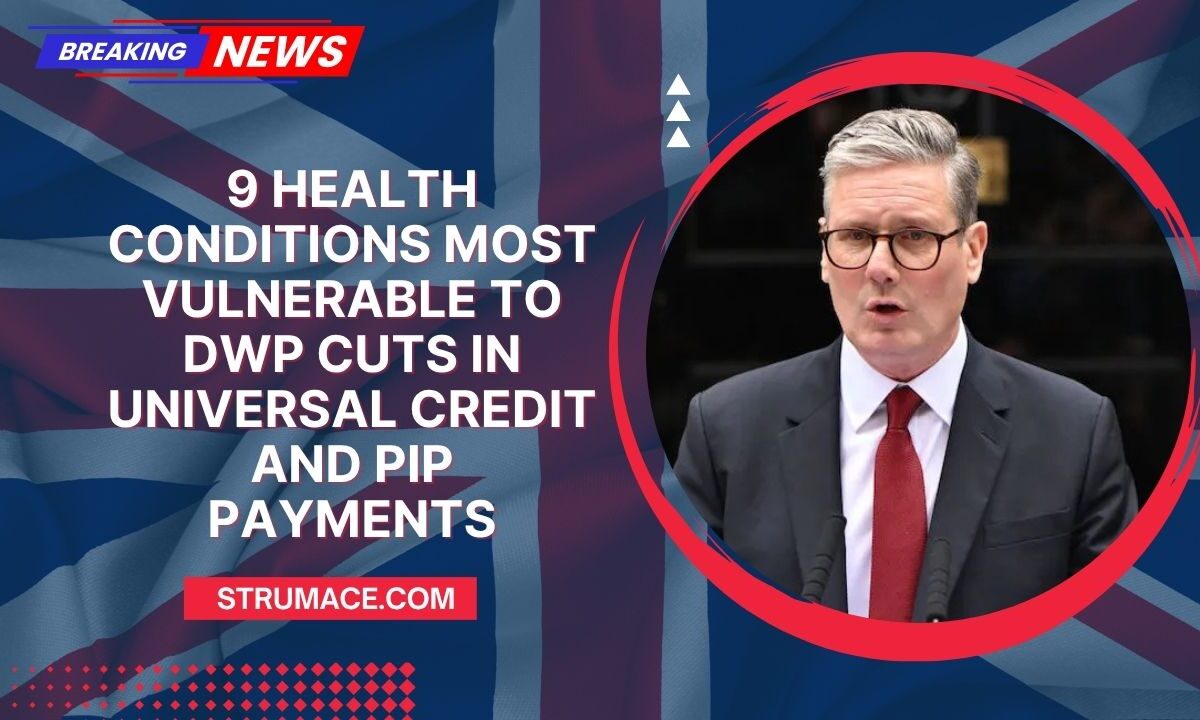Planned welfare reforms by the Department for Work and Pensions (DWP), supported by the Labour Party, aim to overhaul parts of the Universal Credit (UC) and Personal Independence Payment (PIP) system.
These changes are designed to reduce government expenditure, but concerns have been raised about the potentially severe consequences for disabled individuals.
Anti-poverty charity Z2K has voiced its apprehensions, revealing that at least six major health conditions could face reduced support under the proposed adjustments.
Health Conditions Likely to Be Affected
The health conditions most at risk from cuts to Universal Credit’s health-related elements include:
- Parkinson’s disease
- Schizophrenia
- Multiple sclerosis
- Bipolar disorder
- Autism
- Dementia
In addition, a parliamentary committee report has identified three more conditions that could be impacted:
- Myalgic encephalomyelitis (ME)
- Premenstrual Dysphoric Disorder (PMDD)
- Eating disorders
Financial Impact on Disabled People
Ayla Ozmen, Director of Policy and Campaigns at Z2K, stated that individuals suffering from these severe health conditions may lose over £200 per month due to reductions in Universal Credit’s health component.
She emphasized:
“Despite government claims, many of those affected are unlikely to be fit for work due to the severity of their conditions.”
Z2K is urging the government to provide clear assurances that vulnerable individuals will be protected under the revised welfare plans.
Projected Rise in Poverty Among the Disabled
Concerns go beyond individual losses. According to Labour MP Debbie Abrahams, approximately 50,000 people who become chronically ill or disabled and begin claiming Universal Credit from April next year could be pushed into poverty by 2030.
Abrahams highlighted that even though some concessions were made to the Universal Credit bill, the financial support gap remains an unresolved issue.
She proposed postponing the implementation of health-related benefit cuts until other supportive measures—such as improved NHS capacity and job retention programs—are in place.
Government’s Position on the Reforms
A government representative defended the plans, stating:
- The reforms are intended to incentivize employment and offer a robust safety net for those unable to work.
- They anticipate lifting 50,000 children out of poverty through welfare adjustments.
- A £3.8 billion employment support package will accompany the changes to help people with long-term health conditions secure stable jobs.
The government also pointed to additional initiatives, including:
- Free school meals for all households on Universal Credit
- Holiday hunger programs through the Crisis and Resilience Fund
- Fairer repayment terms for Universal Credit deductions
- A significant boost in affordable housing construction
Summary of Key Details
| Category | Details |
|---|---|
| Affected Conditions | Parkinson’s, Schizophrenia, MS, Bipolar, Autism, Dementia, ME, PMDD, ED |
| Potential Loss | Over £200/month for some claimants |
| People at Risk of Poverty | 50,000 new claimants by 2030 |
| Government Investment | £3.8 billion in employment support |
| Other Support Measures | Free school meals, housing programs, Crisis & Resilience Fund |
While the DWP and Labour-led welfare reforms aim to modernize the system and reduce dependency, they have sparked significant concern among charities, campaigners, and parliamentarians.
With thousands of disabled individuals potentially losing substantial financial support and many at risk of falling into poverty, experts stress the need for delaying the cuts until comprehensive support mechanisms are implemented. Ensuring the wellbeing of vulnerable groups must be a priority in any sustainable welfare strategy.
FAQs
Which health conditions could be most affected by the DWP’s Universal Credit reforms?
Nine conditions, including Parkinson’s, Schizophrenia, MS, Bipolar disorder, Autism, Dementia, ME, PMDD, and Eating disorders, are highlighted as most vulnerable.
How much money might claimants lose per month due to these reforms?
Those affected could see their benefits reduced by over £200 per month, particularly if they rely on the health-related component of Universal Credit.
What is the government doing to support affected individuals?
The government promises £3.8 billion in employment support, free school meals, and affordable housing initiatives, along with other poverty reduction measures.




